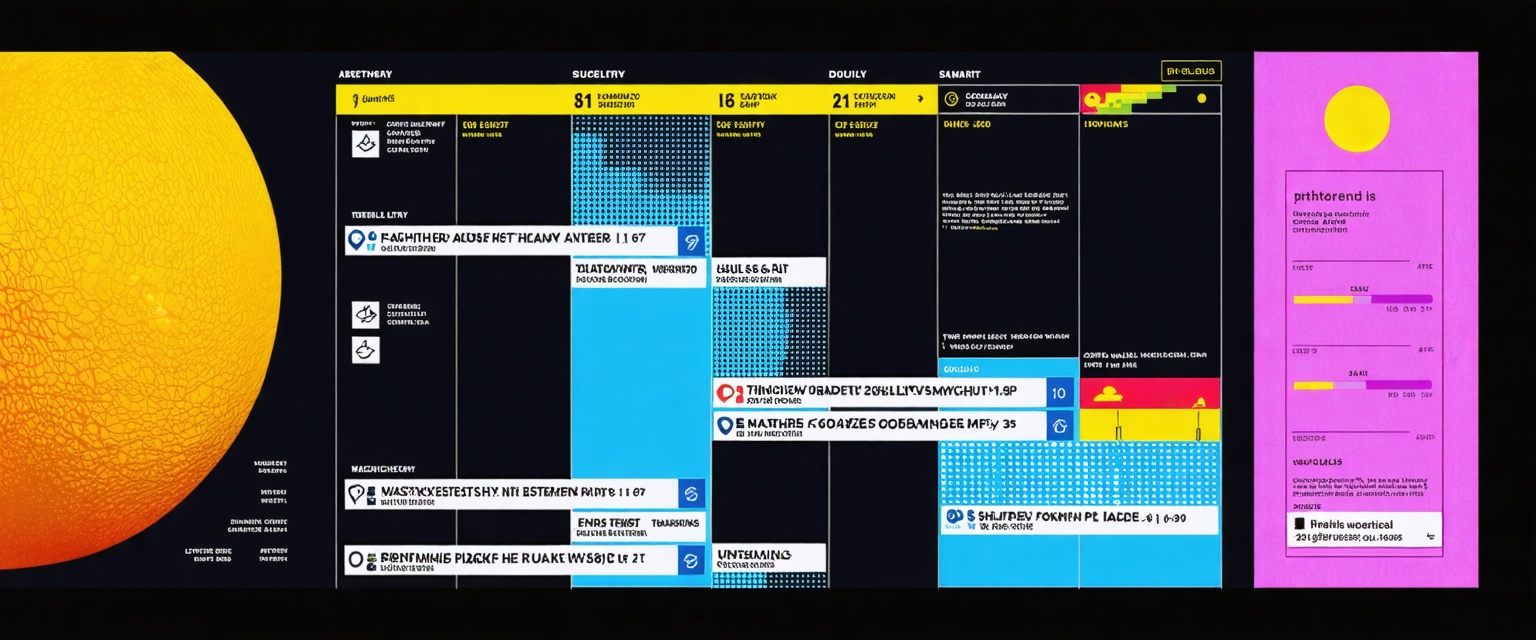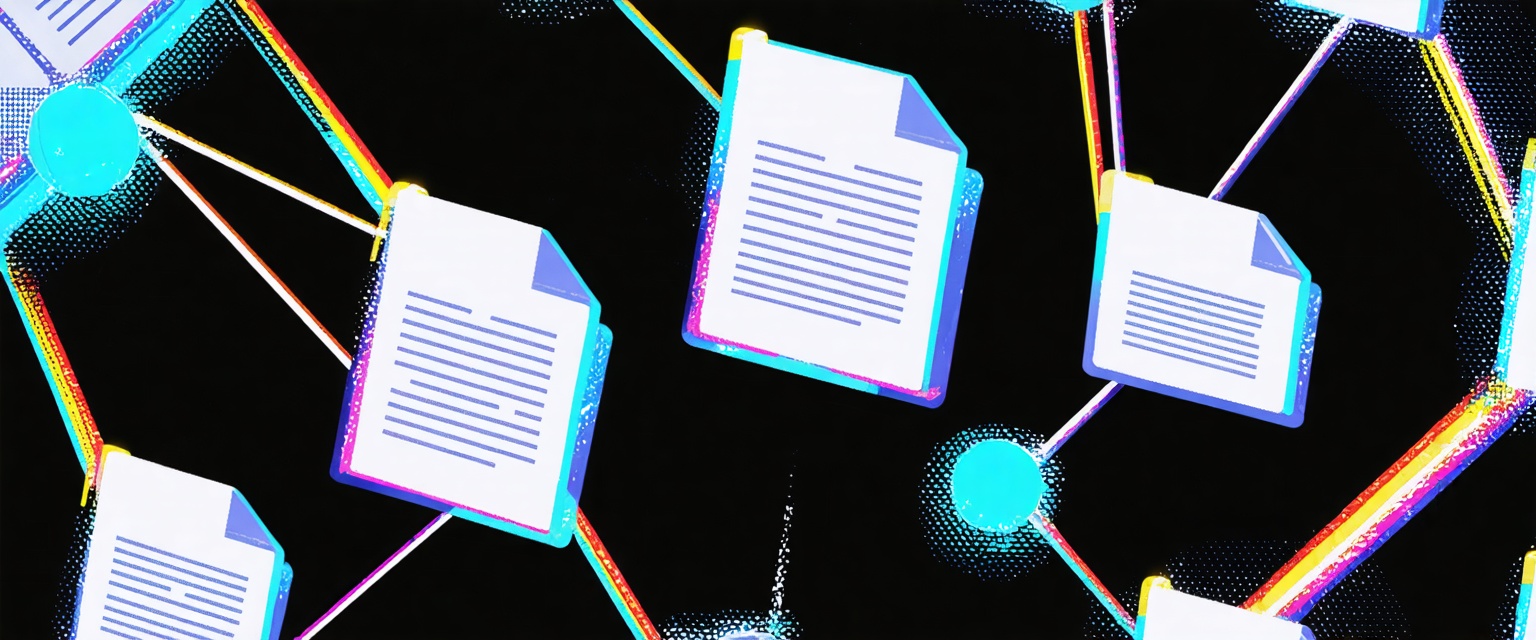Explore how AI agents automate contract standardization for legal construction specialists, reducing risks, speeding approvals, and ensuring compliance.
Legal construction specialists struggle to maintain consistency across contract terms, especially for indemnity, safety, and compliance language. Manual review processes are slow, error-prone, and leave firms exposed to unnecessary risks.
Thanks to advancements in Agentic AI, intelligent agents can now analyze, compare, and standardize contract clauses across documents with precision and speed. Datagrid’s AI agents streamline this process, ensuring uniformity while reducing manual workload.
This article explores how AI agents automate contract terms standardization for legal construction specialists.
Understanding Contract Terms Standardization in Construction
Smart construction law practitioners don't start from scratch with each contract. They create uniform, pre-approved language and clauses that work consistently across multiple projects, which enhance construction processes.
This systematic approach uses proven legal language, established risk allocation frameworks, and compliant terms that satisfy both regulatory requirements and industry best practices.
By implementing standardization and environmental compliance automation, firms can more effectively adapt to these changing regulations.
Uniform methodology benefits payment schedules, indemnification clauses, insurance requirements, safety obligations, OSHA compliance provisions, change order procedures, and dispute resolution processes.
Standardized indemnity clauses create clear responsibility boundaries between general contractors and subcontractors. Uniform payment terms establish consistent cash flow expectations for all project stakeholders.
This approach becomes crucial as construction firms navigate complex regulatory landscapes where labor laws, environmental regulations, and safety requirements frequently change.
Consistent documentation reduces ambiguity and potential disputes while ensuring every agreement maintains legal compliance and supports efficient project execution across your entire portfolio.
4 Ways Standardized Processes Protect Legal Construction Specialists
Standardized contract terms shield legal construction specialists from costly disputes and operational inefficiencies. In an industry with escalating regulatory complexity and economic uncertainty, standardization provides essential protection on multiple fronts.
Reduces Ambiguity in Contract Language
Standardized clauses eliminate vague terminology that triggers disputes between contractors, subcontractors, and project owners. Clear, consistent language around safety obligations, material specifications, and performance standards prevents misinterpretation during project execution.
When conflicts arise, standardized terms support faster resolution by providing unambiguous reference points, cutting litigation costs and project delays.
Speeds Up Contract Review and Approval
Pre-approved templates and standard terms accelerate reviews without renegotiating fundamental clauses. This speed matters in construction's tight timelines and competitive bidding windows.
Legal construction specialists can focus on project-specific provisions while maintaining consistent risk protection across the portfolio.
Strengthens Compliance and Audit Readiness
Standardized documentation ensures consistent adherence to evolving labor laws, safety regulations, and environmental requirements.
Uniform formatting and language make internal audits and third-party reviews straightforward, reducing compliance gaps that could expose firms to regulatory penalties or insurance claims. Additionally, AI solutions can enhance workplace safety with AI by automating safety training compliance tracking.
Supports Fair and Balanced Risk Allocation
Standard processes help align contracts with industry norms around equitable risk distribution. This balanced approach protects both clients and project stakeholders from unbalanced exposure while supporting the growing emphasis on fair contract advocacy throughout the construction industry.
Additionally, AI tools can automate construction risk identification, further enhancing risk management through standardization.
Limitations of Manual Contract Terms Standardization
Managing construction contracts manually is a losing battle against time, complexity, and human error. Traditional standardization approaches create bottlenecks that compromise project timelines and legal compliance across your portfolio.
Time-Intensive Clause Extraction
Your legal and contract teams waste hours manually identifying key clauses across hundreds of agreements. This challenge grows when contracts arrive in unstructured formats or vary widely in terminology. Processing scanned documents adds another layer of complexity, highlighting the need to automate document parsing.
Each contract requires individual attention to extract payment terms, indemnification clauses, insurance requirements, and compliance obligations. Complex agreements can take days to process completely.
The repetitive nature drains resources and increases oversight risk when team members get fatigued from reviewing similar language.
Cross-Document Inconsistency and Comparison Challenges
Comparing terms across contracts from different vendors, projects, or time periods means tedious side-by-side reviews. Even minor wording differences between similar clauses can introduce significant legal risk.
Spotting these variations requires meticulous attention. With multiple contract versions or amendments, tracking changes becomes increasingly complex.
This creates confusion about which terms actually govern specific situations and increases the likelihood of misinterpretation.
Handling Legacy Contracts with Outdated Language
Old agreements written under outdated legal standards require extensive review and rewriting. Recent structural failures have prompted stricter safety regulations, making legacy contracts potentially non-compliant.
These documents often contain obsolete language around labor classifications, environmental requirements, or safety protocols that must be identified and updated.
This process requires both legal expertise and knowledge of regulatory evolution to ensure proper modernization. Implementing AI in legal document processing can streamline the review of such agreements.
Maintaining Compliance Amid Evolving Regulations
Construction contracts face a patchwork of federal, state, and local regulations that change frequently. Manual efforts struggle to keep pace with changing labor laws, safety regulations, and local codes.
This creates compliance gaps across projects that can lead to penalties and delays. Worker misclassification issues and evolving unionization efforts require constant vigilance.
Tracking these changes manually across your entire contract portfolio becomes practically impossible as regulations multiply.
Scaling Standardization Across Large Portfolios
Manual processes break down when managing dozens of subcontractors and project types simultaneously. With workforce shortages affecting institutional knowledge transfer, the administrative burden becomes overwhelming.
Maintaining consistent standards takes valuable time away from strategic risk and vendor management. The complexity multiplies when each project has unique requirements. This complexity also affects other areas such as material management, making it challenging to streamline material management.
These projects still need to follow company-wide standards for risk allocation and compliance, creating an unsustainable balancing act for manual systems.
How AI Agents Automate Contract Terms Standardization
AI agents transform contract standardization through sophisticated machine learning and natural language processing. These tools convert the traditionally manual standardization process into an automated workflow delivering both speed and precision, specifically benefiting legal construction specialists.
Extracting Clauses with Natural Language Processing
Natural language processing lets AI identify and isolate critical clauses from both structured and unstructured contracts.
Whether processing termination terms, indemnity clauses, payment conditions, or safety provisions, AI technology rapidly scans and extracts these elements without the manual searching that eats up hours of legal review time. This proves invaluable when processing legacy contracts with inconsistent formatting or terminology.
Comparing Clauses Across Multiple Contracts
After extraction, AI excels at comparing terms against standard templates and past contracts within your organization.
The system flags inconsistencies, outdated phrasing, or unusual terms that might expose your firm to risk, providing valuable narrative insights from AI. These capabilities help streamline contract processes with AI, revolutionizing contract and risk management.
Platforms like Document Crunch automatically identify and standardize key risk issues by comparing contracts against industry templates, helping companies scale contract management without expanding their legal teams.
Flagging Deviations and Suggesting Edits
These systems detect variations from approved language and suggest corrections in real time, allowing legal teams to review changes directly within the platform. This capability accelerates review cycles and improves compliance, helping teams to streamline workflows with AI.
Auto-Generating Harmonized Contract Versions
The automation extends to generating fully standardized contract versions by replacing inconsistent terms with approved language. This makes it possible to create legally aligned documents across dozens of subcontractor agreements quickly.
A key aspect of this is AI contract validation, ensuring all contracts meet organizational standards before execution. Solutions like Evisort enable automated extraction and standardization of key terms, drawing on repositories of standardized language to ensure company-wide compliance.
Integrating with Contract Management Systems
Integration capabilities allow these systems to connect with contract lifecycle management platforms and document repositories. By leveraging AI, firms can streamline document processing, enhancing efficiency in contract management.
LegalOn's AI solution tailored for construction contracts helps firms standardize contract drafting while identifying deviations from organizational standards in real time, significantly reducing project kick-off times and compliance risks.
Improving Accuracy Over Time Through Machine Learning
Most importantly, these systems improve through machine learning. As they process more contracts and receive user feedback, they become increasingly effective at clause recognition and provide smarter suggestions.
This continuous learning ensures your contract standardization processes evolve and improve, delivering enhanced accuracy and speed that traditional manual processes cannot match. Moreover, AI can also streamline tasks such as litigation document management, freeing up legal professionals for more strategic work.
This intelligent automation represents a fundamental shift toward scalable, consistent contract management that reduces legal exposure while accelerating review processes across entire project portfolios.
Datagrid for Construction Proposal and Vendor Management
Construction professionals struggle with managing complex proposal documents, vendor qualifications, and bid materials across multiple projects. Documentation volumes create bottlenecks that delay procurement decisions and impact timelines, requiring a more efficient approach to information management.
Datagrid's AI-powered platform offers specialized solutions for construction proposal and vendor management workflows. Unlike traditional software, the platform's AI processes vast datasets and automates complex analytical tasks that would otherwise consume countless hours of manual review.
RFP Response Acceleration
The platform transforms RFP response preparation by processing thousands of proposal documents simultaneously. It automatically extracts critical requirements, compliance needs, and submission deadlines.
This comprehensive analysis streamlines response preparation and ensures you never miss essential requirements that could disqualify your proposals. Your team can focus on crafting winning responses rather than hunting through dense documentation.
Vendor Qualification Automation
Vendor qualification becomes effortless through automated analysis of documentation, streamlining vendor document management. The system examines safety records, insurance certificates, and performance history across multiple projects.
It generates comprehensive qualification reports and risk assessments. This automated approach ensures consistent evaluation criteria while significantly reducing the time needed to validate vendor credentials.
Bid Comparison Intelligence
The platform tackles one of the most time-intensive aspects of procurement through intelligent bid comparison. It automatically extracts and organizes pricing, materials, timelines, and exclusions from multiple bid packages.
It creates detailed side-by-side comparisons that highlight key differences and identify the best values. This helps you make data-driven decisions quickly, even when comparing dozens of complex proposals.
Subcontractor Performance Analysis
The system uses historical project data to evaluate reliability, quality, and schedule adherence across your portfolio. The platform identifies performance patterns that inform future vendor selection decisions.
This comprehensive analysis helps you identify potential issues before they become costly project delays, improving overall project outcomes.
Material Specification Compliance
The AI ensures project specifications are met before materials arrive onsite. It analyzes product submittals against detailed project specifications, identifying compliance gaps and substitution opportunities.
This prevents costly delays and rework that occur when non-compliant materials reach the job site, saving both time and resources during construction.
Contract Term Extraction
The platform automatically identifies critical terms, payment schedules, and change order provisions across vendor agreements. This comprehensive contract analysis enables effective contract management.
It ensures you understand all contractual obligations before signing, reducing risk and potential disputes later in the project lifecycle.
Document Version Control
The system tracks and compares proposal revisions in real time, identifying substantive changes between versions. This ensures your teams always work with current information.
Version control prevents miscommunications and errors that occur when working with outdated documents, keeping everyone aligned on the latest requirements.
By implementing this solution, your procurement team can focus on strategic vendor relationships while AI handles the document-intensive analysis. The platform's integration with existing tools like Procore ensures seamless adoption without disrupting established workflows.
Simplify Construction Tasks with Datagrid's Agentic AI
Don't let data complexity slow down your team. Datagrid's AI-powered platform is designed specifically for teams who want to:
- Automate tedious data tasks
- Reduce manual processing time
- Gain actionable insights instantly
- Improve team productivity
See how Datagrid can help you increase process efficiency.













